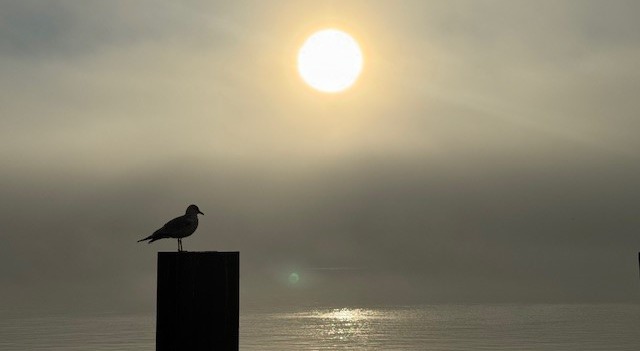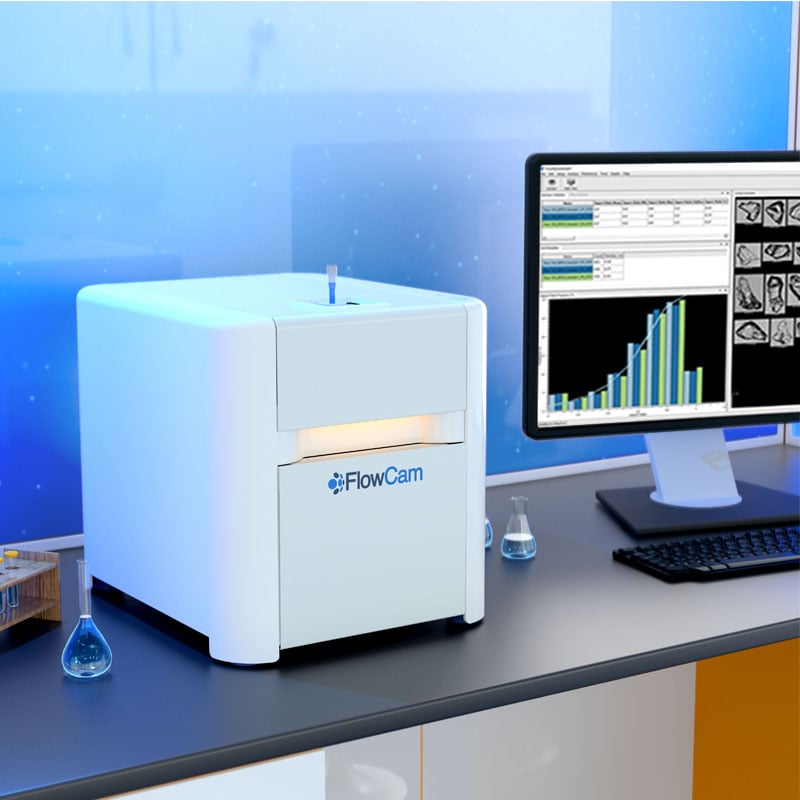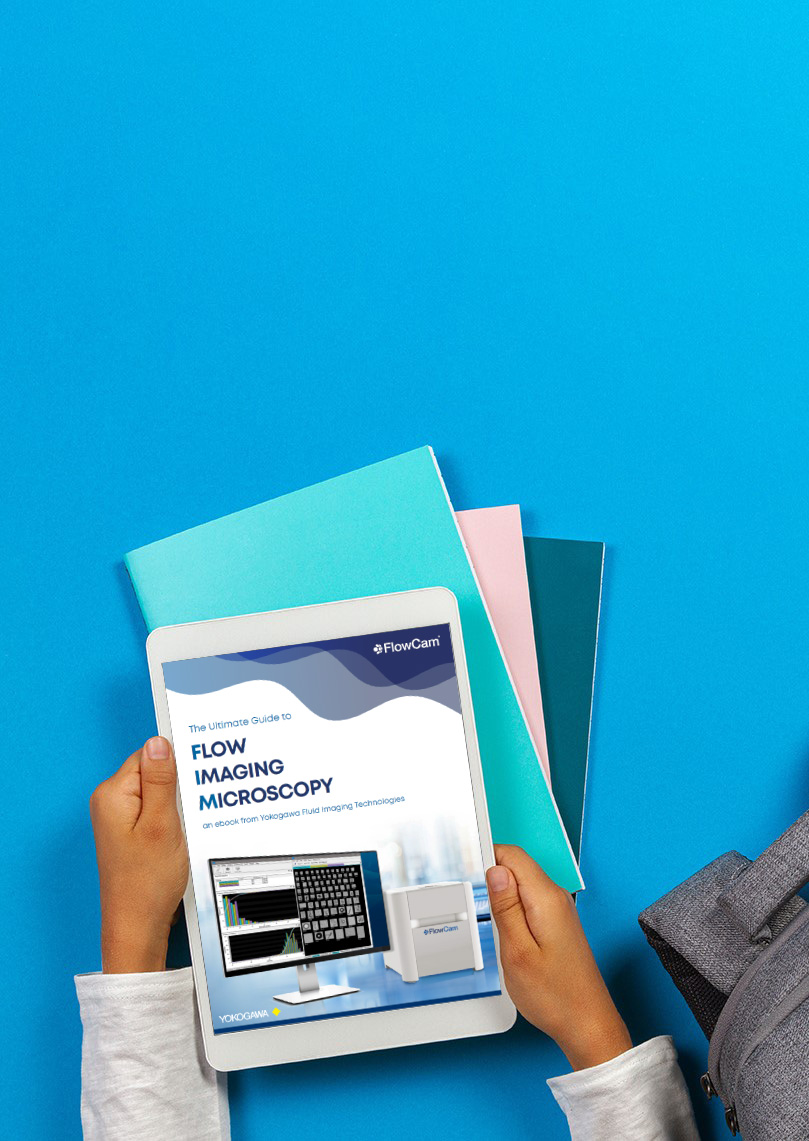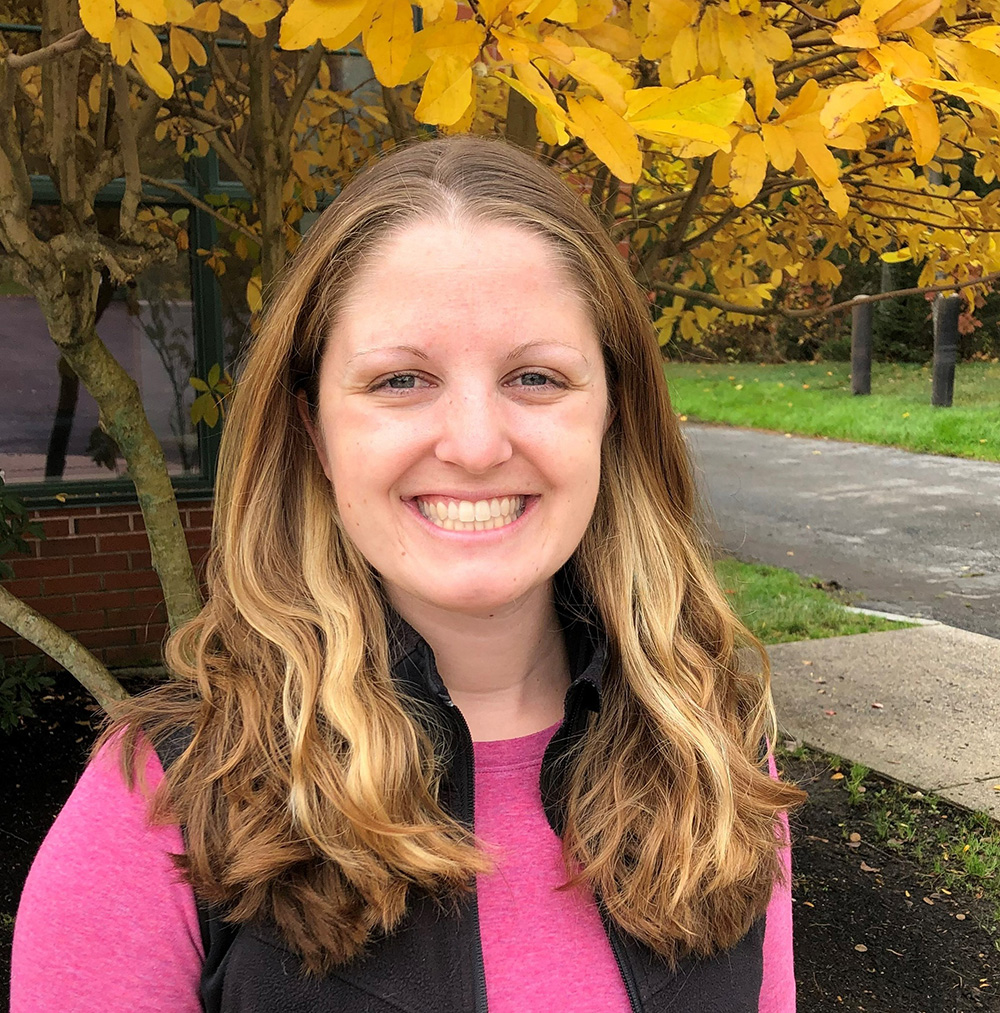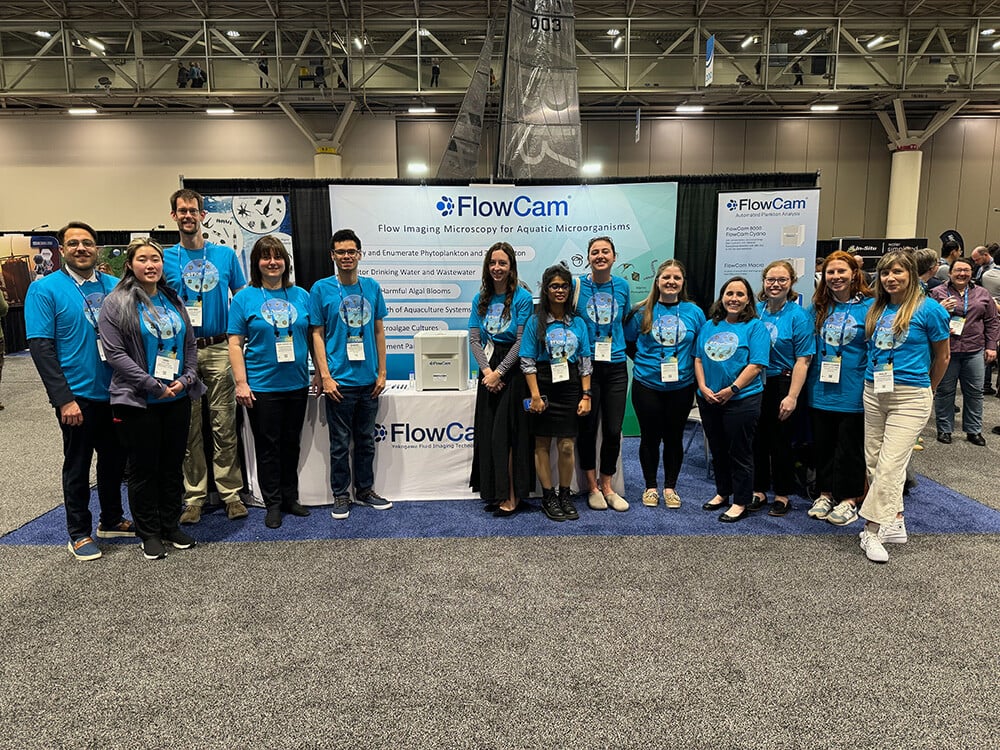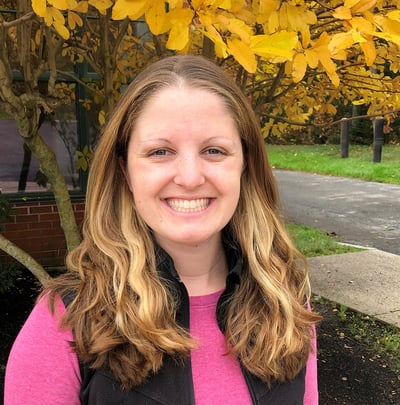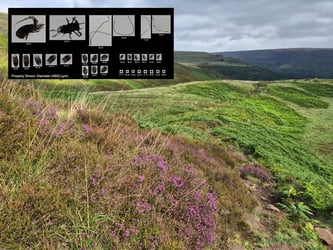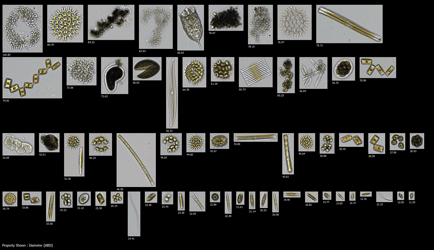The FlowCam team had an excellent time in New Orleans for ASLO’s Ocean Sciences Meeting (OSM) last month! In case you missed it—or just want to relive the fun through our lens—here are some of the highlights of this year’s meeting.
Operational Phytoplankton Observation Working Group (OPO WG) Meeting & Town Hall
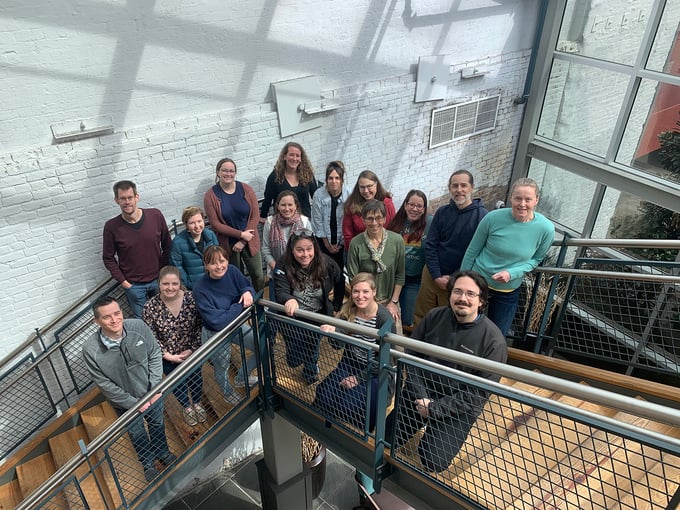 This was the second in-person meeting of the OPO WG leading up to OSM. The purpose of this group is to document a set of best practices for plankton imaging instruments. In the days leading up to OSM, we participated in multiple group writing sessions and discussions to help develop these guidelines.
This was the second in-person meeting of the OPO WG leading up to OSM. The purpose of this group is to document a set of best practices for plankton imaging instruments. In the days leading up to OSM, we participated in multiple group writing sessions and discussions to help develop these guidelines.
The Town Hall meeting on Friday invited members of the community to share their input on core topics including operational considerations, data products, data management, and uncertainty.
Thank you to Nicole Poulton, Aimee Nealy, Sophie Clayton, and the Ocean Carbon and Biogeochemistry (OCB) team for all they did to convene these sessions.
Creative & Thought-Provoking Opening Plenary
OSM's opening plenary session gave us the stories of four incredible thought leaders. Four women told of their experiences growing up in Louisiana and their connections to the land and water in the form of a “live documentary” with visceral visuals and background sound that was being composed in real-time. Themes included environmental justice, race, and so much more.
To learn more about this plenary and mode of storytelling, please read this article by Kristen Currey at the University of Rhode Island.
Scientific Sessions
This OSM conference may have hit a record number of concurrent sessions (19)! The week started very strong with a session on ecological responses to climatic drivers. Other session topics included mixotrophy, time series observations, ocean color & hyperspectral imaging, and phytoplankton ecology at large scales.
Many FlowCam customers presented at the conference. Here are a few of them:
Dr. Alex Barth, University of South Carolina: “Determining the impact of severe rain events on phytoplankton communities through HPLC & FlowCam”
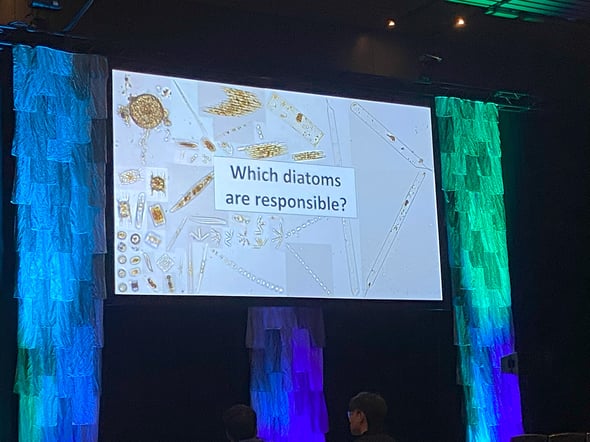 Alex Barth was the 2023-24 FlowCam Grant Recipient for Graduate Students. Dr. Barth created “storms in a bottle” to evaluate the impact of different inputs (freshwater, nutrients, etc.) on phytoplankton communities. He used HPLC to generate broad taxonomic groups (e.g. diatoms) and FlowCam to provide higher, genus-level taxonomic resolution (e.g. Skeletonema, Rhizosolenia, Entonomeis) and biovolume. This data is important when evaluating to what extent different groups of diatoms contribute to the overall biomass, and which groups thrive or suffer under different input conditions.
Alex Barth was the 2023-24 FlowCam Grant Recipient for Graduate Students. Dr. Barth created “storms in a bottle” to evaluate the impact of different inputs (freshwater, nutrients, etc.) on phytoplankton communities. He used HPLC to generate broad taxonomic groups (e.g. diatoms) and FlowCam to provide higher, genus-level taxonomic resolution (e.g. Skeletonema, Rhizosolenia, Entonomeis) and biovolume. This data is important when evaluating to what extent different groups of diatoms contribute to the overall biomass, and which groups thrive or suffer under different input conditions.
Dr. Barth successfully defended his dissertation just a week before traveling to OSM. Congratulations!
Mallory Mintz, Skidaway Institute of Oceanography: “Akashiwo sanguinea blooms in coastal Georgia: Insights from high-resolution monitoring efforts”
Mallory Mintz is a Master’s student in marine science at the University of Georgia. She presented FlowCam data that builds on the work of investigators like Dr. Liz Harvey, which attributed a crash in oyster larvae at the state’s nearby oyster hatchery to a bloom of Akashiwo sanguinea. An additional year of sampling revealed another late summer bloom, and Mallory’s research suggests that conditions like low ammonium, precipitation, and wind speed are among the most important contributing factors to these blooms. In the future, Mallory hopes to incorporate DNA sequencing to better understand the drivers of Akashiwo blooms in the Skidaway River Estuary, with a particular focus on mixotrophy.
Dr. Joaquim Goes, Lamont-Doherty Earth Observatory: “Assessing the impact of the warm pool on phytoplankton functional types, net primary productivity and carbon export in the Arabian Sea”
Dr. Goes presented data from the EKAMSAT-2023 cruise. EKAMSAT stands for “Enhancing Knowledge of the Arabian Sea Marine Environment through Science and Advanced Training” and is a joint effort between the U.S. and India to better characterize the oceanographic and atmospheric conditions that may influence monsoons in India. Dr. Goes and his collaborators used FlowCam as part of a suite of instruments including satellite imagery to help characterize phytoplankton functional types and communities in the ocean during monsoon season.
The Exhibit Hall
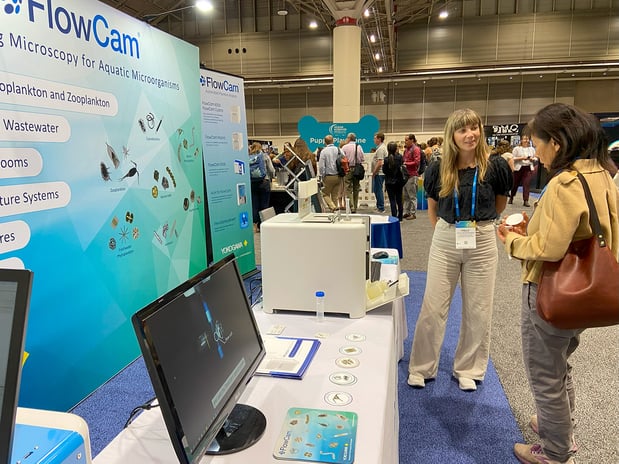 The FlowCam team had great opportunities to connect with current and prospective FlowCam users at our booth in the exhibit hall. We were located adjacent to NASA’s Hyperwall where we tuned in to some excellent presentations on everything from climate models to in situ shadowgraph imaging, to the spectral capabilities of GLIMR for obtaining higher temporal resolution satellite data for key coastal areas.
The FlowCam team had great opportunities to connect with current and prospective FlowCam users at our booth in the exhibit hall. We were located adjacent to NASA’s Hyperwall where we tuned in to some excellent presentations on everything from climate models to in situ shadowgraph imaging, to the spectral capabilities of GLIMR for obtaining higher temporal resolution satellite data for key coastal areas.
Thank you to everyone who joined us for a group photo with our newest FlowCam t-shirts, too! We thoroughly enjoyed getting to catch up with everyone who stopped by to talk, and we look forward to staying in touch.
Thank you so much to this year’s Program Committee for another wonderful OSM experience.
Catch us at the next ASLO meeting in Madison, Wisconsin (June 2-7). For a full list of upcoming events that FlowCam is attending, visit the Events page on our website.
